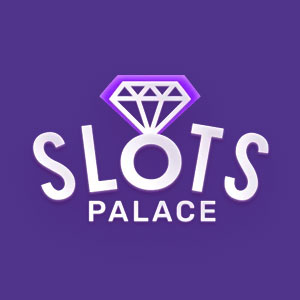Online Gambling Laws in Canada
Canada’s approach to gambling regulation has shifted over time, gradually moving from centralized federal control to more province-specific oversight. The legal landscape has changed alongside technological growth, especially as online platforms began to emerge. Instead of relying on a single national framework, Canadian provinces were granted authority to shape their own rules, resulting in a layered system of regulation that continues today. Key legal developments include:
- 1969: Lotteries became legal under revised federal laws, giving provinces the authority to run and regulate them.
- 1985: The Criminal Code was amended to allow provinces to oversee casino gaming, lotteries, and later, online gambling.
- Late 1990s: Online gambling emerged in a legal gray zone, operating without formal nationwide regulation.
- Early 2000s: PokerStars, which is a major online platform founded in Canada, helped shape the early growth of digital gambling.
- 2021: Bill C-218 passed, legalizing single-event sports betting and setting the stage for broader regulation across provinces.
These milestones helped define how gambling is accessed and managed today. Most provinces now use dedicated government bodies to oversee activity within their jurisdiction, while players outside regulated zones still access offshore platforms. Ongoing legal updates continue to shape the boundaries between local oversight and international access.
Gambling Licenses and Authorities in Canada
Online casinos that serve Canadian players operate under different licensing rules based on their location. Some follow strict provincial frameworks, while others hold international licenses that apply different standards.
Regulators
Online gambling in Canada is regulated at the provincial level. Each province or territory is responsible for licensing, oversight, and operational control of its own gambling platforms. Some manage this directly through government-run corporations, while others partner with shared services like BCLC or the Atlantic Lottery Corporation.
Ontario
- Alcohol and Gaming Commission of Ontario (AGCO)
- iGaming Ontario
British Columbia and Manitoba
- British Columbia Lottery Corporation (BCLC)
- Gaming Policy and Enforcement Branch (GPEB)
- (Manitoba uses BCLC’s PlayNow platform for online gambling)
Quebec
- Loto-Québec
Alberta
- Alberta Gaming, Liquor and Cannabis Commission (AGLC)
Saskatchewan
- Saskatchewan Indian Gaming Authority (SIGA)
- Saskatchewan Gaming Corporation
Nova Scotia, New Brunswick, Newfoundland and Labrador, Prince Edward Island
- Atlantic Lottery Corporation
Yukon, Northwest Territories, Nunavut
- Western Canada Lottery Corporation (lottery-focused only, no online casinos)
Offshore casinos accepting Canadian players are usually licensed by international regulators. These include the Malta Gaming Authority (MGA), Curacao eGaming, and the Kahnawake Gaming Commission, based in Quebec but operating independently. These bodies oversee general compliance, technical fairness, and responsible gambling policies, though they are not subject to Canadian provincial control.
Licensing
Rules about licensing across Canada are handled at the provincial level. Some provinces offer strong regulatory oversight and secure platforms, while others have limited options or no regulated online casinos at all.
| Province | Regulator / Platform | Regulation Strength |
| Ontario | AGCO / iGaming Ontario | Strong |
| British Columbia | BCLC / PlayNow | Strong |
| Quebec | Loto-Québec / Espacejeux | Strong |
| Alberta | AGLC / PlayAlberta | Strong |
| Manitoba | MBLL (via BCLC PlayNow) | Moderate to Strong |
| Saskatchewan | SIGA / SaskGaming (via BCLC PlayNow) | Moderate to Strong |
| Nova Scotia, NB, NL, PEI | Atlantic Lottery Corporation | Moderate |
| Yukon, Northwest Territories, Nunavut | WCLC | Weak / No Online Casino Regulation |
Players in provinces with strong regulation, like Ontario, British Columbia, and Quebec, benefit from enforced standards covering KYC checks, payout procedures, game fairness, and data protection. These platforms are audited regularly and follow AML policies.
Provinces using BCLC services gain most of these benefits but have less local autonomy. The Atlantic provinces offer fewer options and limited private access, while the territories have no regulated online casinos at all. Players in lower-control areas often use offshore sites, which do not follow Canadian regulatory standards.
Casinos operating offshore rely on their own licensing jurisdictions. These regulators are not subject to Canadian provincial control, but they define how offshore platforms operate:
- Malta Gaming Authority (MGA): Known for strict standards, including mandatory fund segregation, detailed compliance audits, and strong responsible gambling oversight.
- Curacao eGaming: Offers easier access to licensing with fewer operational restrictions. Some players view these licenses as less secure due to minimal enforcement and oversight.
- Kahnawake Gaming Commission: Based in Quebec but operates independently. It has licensed many offshore casinos serving Canadian players, though its recognition is inconsistent across provinces.
Players in Canada are not restricted from using these sites, but they do so without local legal protections. Choosing an offshore casino means relying on the standards of the licensing body rather than a provincial regulator.


